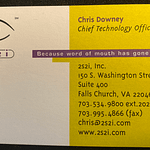*This phrase is from A Tale of Two Cities by Charles Dickens. It refers to people who save others, often at their own expense.
The interviews and writing here took 4 hours. The research and writing for the quoted section of my book took days. You need 4-5 minutes to read this and 9 minutes to listen.
Suzanne took the antidepressant Paxil, a “selective serotonin reuptake inhibitor,” (SSRI)** related to Prozac, for six years. These cause brain damage, but no doctor had ever warned her. When her psychiatrist finally transitioned her off the medication, she immediately began to have sexual dysfunction and other withdrawal symptoms. So he recommended restarting 10mg a day, a minimal dose.
Noxious, menacing effects due to SSRIs occur frequently after the second or the third time that a patient stops or restarts them. This is what happened to Suzanne.
While taking the 10mg of Paxil, Suzanne became paranoid, had violent verbal outbursts, and had her first involuntary movements (dystonia or possibly tardive dyskinesia). She became suicidal, had other violent thoughts, and fantasized about cutting herself. These are well-known occasional effects of SSRIs.
The doctors forcibly hospitalized her. Her family, having little understanding or other options, went along with it. She was soon hallucinating and repeatedly screaming nonsense words. She wanted to hurt the people around her and had to be physically restrained by hospital security personnel.
So the doctors increased her Paxil to 30mg a day—triple the dosage that initially caused problems. Even though this made Suzanne worse, they also added Zyprexa, (an antipsychotic), Ativan (a sedative), and Ambien (a sleep drug). She says Zyprexa was horrible. It made her feel as if knives were stabbing all over her body. It also gave her thoughts that people were trying to kill her. She was held in a locked mental health facility similar to a prison and was threatened with increased medication dosage if she did not improve.
Since these effects occurred suddenly after starting the drugs, she realized that they were to blame. Fortunately, she was allowed to keep her smartphone, although the staff repeatedly threatened to take it. Suzanne started studying 14 hours a day from inside her solitary prison-like cell. She first read in Dutch but later began using English on the Facebook group dedicated to her primary drug effect, “akathisia.”
She found MISSD.CO, Woodymatters.com, MadinAmerica.com, and other websites dedicated to psychiatric medication disasters like hers. Suzanne was dumbfounded by Katinka Blackford-Newmann’s story because her involuntary hospitalization in the EU was nearly identical to Suzanne’s.
When Suzanne explained akathisia and dystonia to her state-employed Dutch psychiatrists, they insisted that there was no such thing. They also said that she must stop researching or they would never release her. She soon developed severe insomnia and deteriorated mentally and physically.
Suzanne had learned how to video-call people in the Facebook akathisia group and she contacted Ben Bathen (see my episode about him HERE). She popped up randomly in the middle of his normal work afternoon and said "I have akathisia, it is horrible, and I do not want any more Paxil!!! Can you get me out of here?"
After all the research for his own case, Ben had the emails of several activists and doctors who try to help pharmaceutical company victims. Surprisingly, some of the worldwide experts on adverse drug effects including Peter Goetszche and Dick Bijl in the Netherlands responded to his inquiries. Ben was also able to contact David Healy and Selma Eikelenboom. They communicated with Suzanne via email, then phone calls, and were ultimately able to find a doctor who helped.
She was released within a few weeks and successfully tapered off almost all medication, although she describes her Ativan addiction as being particularly painful. She now occasionally calls Ben at three AM her time because of severe, persistent insomnia.
Although Suzanne was horrifically traumatized by her experience, since leaving the hospital she recovered rapidly. Although she wonders at times how she can fully return to normal life after such an experience, she is back to being an attractive, well-adjusted 29-year-old schoolteacher. She worries about the patients she left behind in the hospital, and she is attempting to repair her damaged family relationships.
No doctor ever took responsibility for Suzanne’s nightmare or ever apologized.
NOTES:
**The Selective Serotonin Re-uptake Inhibitor (SSRI) name was pseudoscience dreamed up in the marketing department of SmithKline Beecham. The “chemical imbalance in the brain” idea was the brainstorm of a sales copywriter in the 1950s. Knowledge of serotonin and other neurotransmitters was even more sketchy when Prozac was invented than it is now. Today, this seductive but mythical gibberish embarrasses researchers. (From Butchered by “Healthcare” (2021).
Akathisia is an unbearable agitation that occurs during psychiatric drug usage, withdrawal, or dosage change. It can also happen with Reglan (metoclopramide), a drug that is used for gastrointestinal issues. Some victims of this syndrome attempt suicide or become violent.
Suzanne also had spasms that were likely “torticollis.”
Here is what I wrote about these problems in Butchered by “Healthcare:”
“Typical” or first-generation antipsychotics such as Thorazine and Haldol were marketed as a treatment for insanity since the 1950s, but they have horrendous side effects. These include involuntary movements that look like Parkinson’s disease. Rigid muscles with painful spasms are also common. Akathisia, an uncontrollable restlessness that occasionally results in suicide, occurs in 25 percent. The neuroleptic malignant syndrome, which is a violent elevation of body temperature, is rare but life-threatening.
Tardive dyskinesia (TD) is the best-known of these problems. Twenty to thirty percent of people taking these drugs get it, and 500,000 individuals in the US have it. Involuntary movements are characteristic. Patients' tongues and arms and legs may make strange motions. Their cheeks, jaws, and noses contort. Eyelids spasm, eyes move around, and the patients may make unintentional sounds. The psychiatrists call these “worm-tongue, fly-tongue, or rabbit-face.” Caregivers may never recognize the drug(s) as the cause, and they may blame and punish patients.
TD usually occurs after six months to two years of treatment, but may happen after just a few months. When the drugs are discontinued, the syndrome often lingers, or sometimes it begins for the first time. Many patients who use these medications must continue them because this effect often gets worse without them. The brain’s grey matter shrinks, which is a proof of damage. TD is also associated with premature death. (Note: Ben Bathen has some remaining tardive dyskinesia symptoms after his brutal experience with the psychiatric industry.)
Antipsychotics destroy physical health. Stroke, seizures, weight gain, blood clots, heart attacks, pancreatitis, and heart rhythm disturbance are linked with them. There has never been a recall by the FDA, only a black-box warning.
The newer “atypical” antipsychotics include Abilify and Zyprexa, available since the 1990s. Their marketing proclaimed that they produced less TD and other related damage. Initial studies suggested that the tardive dyskinesia rate was a quarter of that for the older medications. Later trials focusing on TD revealed that there was little substantial difference between the older and newer drugs.
Like the first generation, the atypical antipsychotics cause health problems: stroke, blood clots, weight gain, heart attacks, and diabetes. They cut up to twenty years off of patients’ lives, and they also shrink the brain. Eli Lilly, the developer, concealed these adverse effects, although they were known from the first trials.
Any psychiatrist who does not immediately recognize the signs and symptoms of these drug effects is incompetent.















Share this post